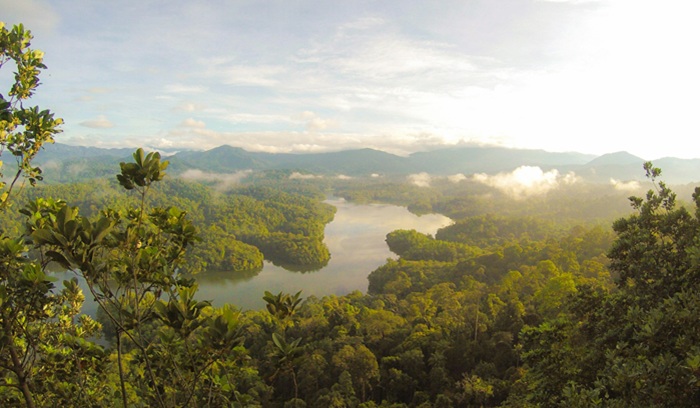A landmark international coalition has committed to formally recognizing 395 million acres of Indigenous and traditional community lands worldwide. Brazil, Colombia, Costa Rica, Ecuador, Gabon, Guatemala, the Republic of Congo, Peru, and Venezuela made a major commitment to land tenure security is a significant victory for human rights and climate action. The pledge represents a major step toward realizing the rights of Indigenous Peoples.
This unprecedented commitment secures a land area larger than Peru. It provides millions of Indigenous and local people with legal certainty over their ancestral territories.
A Triumph for Land Tenure Security
The core positive impact of this pledge is the advancement of land tenure security. Decades of research confirm that granting legal rights to Indigenous Peoples dramatically reduces rates of deforestation and resource exploitation. Indigenous-managed forests consistently demonstrate lower levels of carbon emissions and higher rates of biodiversity compared to state-managed or commercially-managed lands. This legal recognition formalizes the historical role of Indigenous Peoples as the most effective stewards of the environment.
This security unlocks economic opportunities for local communities. With secure tenure, communities can invest in sustainable forestry, eco-tourism, and agroforestry projects. This commitment promotes long-term, sustainable economic development aligned with ecological health. The World Resources Institute (WRI) documents the link between Indigenous land rights and low deforestation rates.
Securing Climate Resilience and Biodiversity
The 160 million hectares included in this pledge encompass some of the world’s most ecologically vital areas. These territories are primarily rainforests, wetlands, and other high-carbon ecosystems. Securing these lands is crucial for global climate mitigation. By protecting these forests, the world is safeguarding massive amounts of sequestered carbon.
The pledge is a powerful, nature-based solution to the climate crisis. It directly supports international goals to protect 30% of the planet’s land and sea by 2030. This move ensures that the most biologically diverse regions are managed by the people who have the deepest ecological knowledge.
Empowering Indigenous Governance
This commitment reinforces the principle of Indigenous sovereignty and governance. Legal recognition affirms the inherent right of Indigenous Peoples to self-determination and to govern their traditional territories according to their own laws and customs. The coalition’s approach prioritizes free, prior, and informed consent (FPIC) in all decisions regarding these lands.
Empowering Indigenous governance enhances social equity. It reduces systemic vulnerabilities and helps communities build stronger political and economic institutions. This sets an inspirational model for reconciliation and cooperation between national governments and tribal authorities worldwide. The United Nations Declaration on the Rights of Indigenous Peoples (UNDRIP) provides the foundational framework for this legal recognition.
A Global Model for Collaborative Conservation
The international coalition backing this pledge includes donor nations, private philanthropies, and major conservation organizations. This unified financial and political effort is critical for mobilizing the necessary resources for demarcation and formal titling. This collaboration ensures that the pledge is translated into verifiable legal action on the ground.
This model of collaborative conservation provides a positive blueprint for future global environmental action. It confirms that the best path to protecting the world’s resources is by supporting the people who have stewarded them for millennia. The International Land Coalition (ILC) provides resources on land tenure security and Indigenous rights. The positive impact of this type of land security on community well-being is widely supported by groups like the Rainforest Foundation Norway, which tracks climate outcomes.
Resources
- World Resources Institute (WRI) on Indigenous Land Rights and Deforestation
- United Nations Declaration on the Rights of Indigenous Peoples (UNDRIP) Full Text
- International Land Coalition (ILC) on Land Tenure Security
- Rainforest Foundation Norway on Climate Impacts of Land Tenure
- Mongabay short article on Government Recognition Commitment
More Good News
-

Senegal launches all-electric bus network powered by renewable energy
Senegal has successfully launched a transformative Bus Rapid Transit system in Dakar, featuring a fleet of 121 fully electric buses. As the first network in Sub-Saharan Africa to operate entirely on renewable energy, the initiative utilizes local solar power to transport up to 300,000 passengers daily. By utilizing dedicated lanes, the clean energy fleet cuts cross-city commute times in half while preventing nearly 60,000 tons of carbon dioxide emissions annually. This monumental project dramatically improves urban air quality and establishes Senegal as a pioneering leader in sustainable, green public infrastructure.
-

Yangtze River showing remarkable ecological recovery following fishing ban
China’s Yangtze River is experiencing a remarkable ecological revival five years into a sweeping ten-year commercial fishing ban. Recent surveys reveal significant increases in overall fish biomass and the heartening return of critically endangered species in the world’s fifth largest river. Furthermore, thousands of former commercial fishers have been successfully transitioned into new roles as official river guardians. This massive conservation effort offers a hopeful, replicable model for global freshwater restoration.
-

Rob Jetten becomes The Netherland’s first openly gay prime minister
In a historic victory for representation and progressive politics, Rob Jetten has been sworn in as the first openly gay Prime Minister of the Netherlands. At 38 years old, the centrist Democrats 66 leader is also the youngest head of government in Dutch history. Jetten successfully formed a minority coalition government following a tense election that defeated far-right populist opponents. His platform prioritizes climate investment, economic fairness, and strong international collaboration. Jetten’s premiership powerfully reaffirms the Netherlands’ global legacy as a pioneer of LGBTQ+ equality and inclusive, cooperative democratic leadership.
-

Millions of New York City workers gain additional time off through new law
Millions of workers in New York City are benefiting from a major expansion of the Protected Time Off Law, which officially took effect in late February 2026. The progressive legislation grants employees an additional 32 hours of unpaid, protected leave that is available immediately upon hire or at the start of the calendar year. This ensures workers do not have to wait to accrue hours before addressing sudden medical emergencies or family crises. The law also vastly expands permitted uses to include mental health care, public disaster recovery, and caring for disabled loved ones.
-

Malaysia bans electronic waste imports to protect the environment and public health
In a monumental victory for public health and environmental justice, Malaysia has enacted an immediate and absolute ban on the importation of electronic waste. By removing regulatory loopholes and launching a strict enforcement campaign, the nation is successfully preventing toxic heavy metals from polluting its soil and waterways. Authorities have already intercepted hundreds of thousands of kilograms of illegal e-waste at major ports, vowing to return the hazardous materials to their countries of origin. This decisive action establishes Malaysia as a leading force in Southeast Asia’s growing movement to reject global waste and prioritize ecological sustainability.
